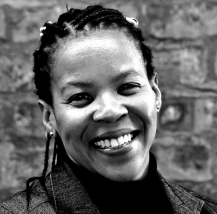Leaders Must Pave The Way For Women In Traditionally Male-Dominated Industries

On Sunday, August 6th 2023, The Women’s Netball World Cup Finals, one of the world’s biggest female sporting events, took place on African soil. On the sidelines of the court was a spread of female camerawomen, an initiative spearheaded by the event’s production partner, SuperSport, to have women lead editing, camera, and production crews.
The impact that this may have had on young women and girls watching the event could be far-reaching. Research suggests that the creation of same-gender role models for youth is linked to career choices in previously male-dominated fields such as STEM, later in their lives.
A study by Celluloid Ceiling found that in the film industry, women comprised just 24% of directors, producers, editors and cinematographers on some of the world’s biggest films, and in professional sports, earnings for women are almost ⅓ of those of their male counterparts. And the numbers are similar in professional industries like insurance, technology, finance, private equity, and others.
Representation matters for it to become the norm
There are historic prejudices that have resulted in the top leadership being male dominated in the science, technology, engineering, and math industries, as is the case with most other industries. But as Mishaya Chettiar, Executive Head, at insurance technology firm Everything.Insure comments, “Over the last decade, we have seen that begin to change.”
“My absolute favourite quote on this topic is from ex-Meta Chief Operating Officer Sheryl Sandberg, who says that in the future, there will be no female leaders; there will just be leaders,” she adds.
“It would be my hope that young women would continue to choose careers in the technologies of the future – science, technology, engineering, and maths. This is in order for us to work towards a time when gender will not be a factor when looking at leadership but simply the norm,” ends Chettiar
Nurturing talent
While it is important for female representation to inspire young women, both male and female leaders have important roles to play in educating, training, and nurturing the talent of young workers.
In the tourism and hospitality industries, whose bread and butter is care, comfort, and a guest’s happiness, we still see men dominating executive and managerial roles across the board.
Reports have shown that, on a global level, women make up nearly 70% of the workforce in hospitality and tourism. However, less than 40% of these jobs are at the managerial level.
Hospitality businesses may have a willingness to promote diversity, though the pace is often slow. But one industry player has made significant in-roads. At Radisson Blu Hotel Waterfront, Cape Town, more than 90% of the management team is female, with each being a leader, mentor, and friend to other women within teams. This nurturing of talent has done wonders for inspiring team members to train for future managerial roles.
This could also have further reaching implications for the future of Africa’s hospitality industry, with travel activity rising after the downturn as a result of the global pandemic.
Earning potential and contribution to the economy
Women contribute around $ 20 trillion in annual consumer spending and this number is expected to grow. There is no denying the importance of equal gender representation in the world’s workforces, more so when considering the possibilities of economic growth for countries across the world as a result of increased spending by women in professional positions.
Industry leaders across professions would do well to consider the impact of greater female representation at workplaces and its positive impact on organisations and the greater economy.









